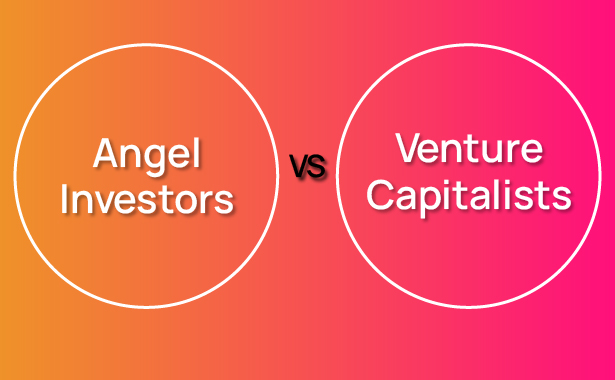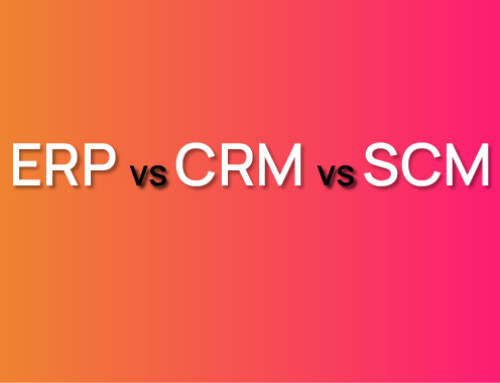Contents
Introduction
If you’re an entrepreneur, you’ve definitely heard about angel investors and venture capitalists, usually as potential sources of funding. But what are they? Are they two words for what is basically the same thing? Or is the difference between angel investors vs venture capitalists something you should know about and use to your advantage? No more question marks, I promise. Here’s everything you need to know.
Angel Investors Vs. Venture Capitalists: Defining The Contenders
There are numerous ways to find angels and VCs. AngelList, which is a platform for startups to raise money from angel investors, is one such resource. Other sites include Funders Club and Gust.
But what exactly are angels and VCs? Angels invest in early-stage companies with their own money (and sometimes other people’s), while venture capitalists invest in growth-stage companies with large amounts of capital from institutional partners.
While the terms “angel” and “venture capitalist” can often be used interchangeably, there are some important differences between the two that should inform your decision about whom to approach for funding:
What are Venture Capitalists?
Venture capital firms are professional investors. They’re usually made up of retired businesspeople, operating partners of private equity firms, former entrepreneurs and employees of large companies. Some venture capitalists also have extensive experience as angel investors. In fact, venture capitalists often make their money by investing in other people’s startups — often the same startups that angel investors invest in!
As a startup founder, you’ll want to take advantage of the expertise that these individuals bring to the table. But don’t assume they will always be correct. They can be wrong at times too! You need to understand where these pros are coming from so you aren’t misled by their advice.
What are Angel Investors?
Angel investors are individuals who invest in small businesses. These can be friends and family, or they can be professionals who invest as a hobby. Angel investors typically invest their own money, rather than using funds from an institution such as a bank. While it’s possible for angels to make a profit on their investment, this is not the primary motivation for them—rather, they are interested in supporting entrepreneurs and helping them build their businesses.
Typically, angel investors have already built successful companies themselves (or at least had some success with other startups), so they understand what it takes to start a business and make it grow. As such, many angels will do more than just write checks; they’ll also provide mentorship and guidance throughout the early stages of your company’s life cycle when things may seem overwhelming or unclear—which is why it’s important to find an angel whose vision aligns with yours!
Angel Investors vs Venture Capitalists: Real Differences
Angel Investors Can Pump in Large Amounts of Money
A venture capitalist, on the other hand, can invest in companies that are further along in their development. They’re typically more willing to take risks with larger amounts of money and they can provide a wealth of experience and insight into the industry. However, they’re less likely to work with startups that are still in their earliest stages.
Angel investors have become increasingly popular over the last decade as an alternative funding source for startups. Angel investors are typically individuals who have some familiarity with startup investing and have already made successful investments themselves. Because angels operate outside of any institutional structure or legal framework (unlike venture capitalists), they tend to be more flexible when making investments—they can invest at any stage of development if they believe strongly enough in the business model or idea behind it.
Angel investors often invest smaller amounts of money than venture capital firms would consider—usually $100k-$300k per company versus $500k-$1 million for most VCs—and will usually only back one or two startups each year instead of 10-15 as may be typical among VCs.
Venture Capitalists Have Certain Criteria They Look For
Venture capitalists will look for a certain level of market validation, market opportunity, market share and market growth. They want to know that the idea has been tried and tested in the real world by other companies. This means they want to see proof that there is an existing demand for your product or service before investing money in developing it further.
This doesn’t mean that you can’t start something new—it just means you need to have a concrete plan for how you’re going to validate your idea first before approaching a VC firm with your pitch deck.
An Angel Investor Will Typically Invest Once
An angel investor will typically invest once, but they might be open to investing again if you prove that your company has what it takes to grow. VCs are looking for a big return, but they also want to see their companies grow. So if your company needs multiple rounds of funding, VCs are often the better option.
You’re going to be spending a lot of time working with your investor, so it’s important that you choose someone who’s right for you. You’ll want an investor who will listen to your business plan and understand what makes it unique. It may seem like these two things are mutually exclusive, but they’re not! If an angel investor is interested in investing in your startup, they’ll probably come up with their own ideas on how to improve upon those basics — even if they don’t agree
Angel Investors Don’t Require You to Show A Profit Right Away
You might not be able to show a profit right away, but angels are focused on the long term.
Venture capitalists are usually looking for companies that already have sales and even profits, so they can get their money back quickly.
Angel investors are focused on the long term. They’re looking for a company that has the potential to grow exponentially over years or even decades. Venture capitalists see a startup as an investment that they’d like to be able to sell in a few years for more than they paid for it. Angel investors might not be as interested in making an immediate return on their investment, but venture capitalists definitely want their money back sooner rather than later.
Venture Capitalists Will Often Invest In Several Rounds Of Funding
VCs typically invest in several rounds of funding, with the size of their investment growing each time. For example, a VC might invest $500K to start, then another $1 million after you’ve proven your product and business model.
After an initial investment is made, the VC may have a lot of say in how things go (especially if they are large investors), but once they have invested their money into the company then they don’t usually have much power over day-to-day operations or strategic direction. Therefore this is not something to worry about too much when deciding whether or not to take on venture capital financing as opposed to just angel investors since both options involve giving up some degree of control over your company once it begins taking on outside investment funds from either source.
For startups looking for seed funding that want more flexibility than what venture capitalists offer but aren’t ready for full ownership yet either due to lack of funds or other reasons then angel investors could be an ideal solution because:
Venture Capitalists Can Bring Money, But They Also Bring Their Experience And Contacts To The Table
The advantage to a VC is that they can help you with your business. They’ll have contacts, experience, and knowledge of the industry that will be invaluable when it comes time for hiring or fundraising.
VCs also bring money with them. While angel investors will only provide funding up to $1M, VCs will give as much as they think is necessary to reach their exit strategy (i.e., IPO). This means that if an entrepreneur has a strong idea that has potential for growth but needs more capital than an angel investor might be willing to invest in order for it happen quickly enough before competition catches up, a VC may step in and fill the gap.
An Angel Investor Might Be More Willing To Take A Risk Than A Venture Capitalist Is
In general, angel investors are more willing to take a risk than venture capitalists are. It’s their job to back new ideas and technologies that could change the world—but it’s also true that this means there are many more failed companies on an angel investor’s resume than on that of a VC.
Angel investors tend to be more willing to invest in companies early in their lifecycle, before they have reached product-market fit or proved themselves with some initial sales data. This is especially true when it comes to consumer-facing products like apps or websites: The angels typically know little about your business model beyond your pitch deck and may not care if you don’t have much past experience running such ventures.
Another benefit of working with angel investors is that they usually come into play after you’ve already proven something valuable (whether through revenue generation or just traction). As such, they’re often open to investing equity in exchange for convertible debt at valuations lower than those offered by venture capital firms—usually between $1 million and $5 million per company—and sometimes even less than this amount if the project seems especially promising.
Venture Capitalists Will Be Focused On Your Exit Strategy Right From The Beginning
Venture capitalists have a fiduciary responsibility to maximize the value of their investments, so they’ll be focused on your exit strategy right from the beginning. This isn’t necessarily a bad thing—it’s good for you, too! They want to know if there are buyers lining up to purchase your business and how much money they will make when they sell it.
The good news is that most people don’t have an exit strategy in mind when they start their business; however, if you can make it clear what kind of opportunities exist for you down the road and how much money you could make through those options, then this will help convince potential investors that what you’re doing is worth their investment.
You May Want To Consider Both Types Of Investors For Your Business
You can get funding from both angel investors and venture capitalists. You can also choose to get funding from one or the other, or you could make it a point to try for both. Which route you take will depend on your business plan, but if anything, we think getting funding from both would be ideal because of their approach and investment style differences. Why? Because each kind of investor offers something unique:
- Angel investors are more likely to offer non-dilutive capital with fewer strings attached than venture capitalists (VCs). This enables them to provide you with more freedom and flexibility as an entrepreneur while still giving you the money needed to grow your company.
- VCs have access to much more money than angels do, so they may be able to help take your product or service into new markets and achieve scale faster than an angel investor could alone (or in combination with other sources of funds).
Ultimately, the best investor for your business will depend on your specific needs. While some entrepreneurs are able to get by with funding from just one type of investor or another. Others prefer mixing their capital sources because it gives them more freedom in the long run.
How to Find Angel Investors for Your Startup?
Find a mentor
One of the best ways to find an angel investor is to find a mentor. Mentors can help you get your first investors, they can help you get your first customers, they can help you get your first employees, they can help you get your first partners and advisors.
They’re in a position where they know the right people and make introductions for you. This can be especially helpful if you’re working on something unique or different from what people are doing today, so it might take some time to wrap their head around what exactly it is that makes sense for them.
Attend events
Attend events that are related to your industry, location, and target audience. If you’re lucky, there will be an event relevant to your specific niche—but if not, ensure the event has a diverse group of attendees who can address all three areas.
If you have an idea for a product or service but aren’t sure how to take it from concept to reality, attend Angel Investor conferences that focus on getting new businesses off the ground (or “seed stage”) like Startupgrind.
Use LinkedIn
- LinkedIn is a great place to network with other entrepreneurs, investors and business people.
- Make sure your profile is up to date and that you have the right keywords in your profile.
- Use the search function to find people in your industry who have been successful.
Then send them an InMail to introduce yourself. If you’re looking for a general partner, search for “venture capital” or “venture capitalist” as your keywords. If you’re looking for an angel investor, try searching by city or industry.
Network, network, network!
It’s important to remember that in order to find an angel investor, you will need to be able to communicate with them. If your pitch does not resonate with your target investor, then the deal won’t happen. It’s important for both parties involved in a transaction that they are on the same page when it comes down to their expectations and goals.
You can build relationships with people who know your target investors such as: friends, family members or business associates who have worked with them before or have connections within their network of connections (e.g., LinkedIn). These types of relationships provide trust while also creating familiarity between parties involved in this process because they share commonalities such as similar interests or lifestyles which creates familiarity between each party involved in this process because they share commonalities such as similar interests or lifestyles which creates familiarity between each party involved
Use an Angel Investment Directory
- AngelList
AngelList is a site that lists angel investors, and it’s easy to search for them by location. The downside of this method is that you’ll have to pay an annual fee if you invest through them.
- Angel Investing
This website allows you to find local angel groups in your area so that you can get advice from experienced investors before making a pitch. The downside of this method is that it may be difficult to find real angels who will take the time out of their busy schedules to give advice!
If you’re looking for investors who can provide funding as well as expertise, attend Angel Investor conferences that focus on getting new businesses off the ground (or “seed stage”) like [Startup Grind](https://www.startupgrind.com/). If you have an idea for a product or service but aren’t sure how to take it from concept to reality, look for an event that will help with that processThe Angel Capital Association also provides a directory that lists angels by location. If you’re in the U.S., this is probably one of your best bets because it’s free!
Ask for introductions
There are two main paths to building a network of angel investors: the people you know, and the people you don’t. So, how do you build your networks?
- Ask for introductions from people you know who might be connected to an angel investor. When talking with friends or family members—whether it’s a close friend, an acquaintance who has an interest in your business or industry (e.g., if you’re starting a software company), or even someone who works at the same company—ask them if they have any connections to local angels. They may not have any connections themselves but could put you in touch with someone else who does.
- Ask for introductions from local angels directly by emailing them directly through their website profiles on AngelList, Gust Launchpad, or another platform that helps connect startups with potential investors (more on those platforms later). This can be intimidating at first because most entrepreneurs aren’t used to reaching out cold like this; however, remember that no one said finding an angel investor would be easy!
Try an investment platform
Angel investment platforms are a great way to find angel investors. These platforms enable you to market your business and seek out investors who are looking for opportunities in your industry, region or sector.
They also make it easier for angels to find businesses that meet their criteria by curating both existing companies and those seeking investment, filtering them according to the investor’s needs.
Investment platforms are an excellent way to find investors who are looking for companies in your industry and region. Angellink is an online marketplace that connects startups with qualified angel investors, which is searchable by keyword or category. If you’re looking for more targeted opportunities, though, AngelList will only match you with potential angels if they’re already interested in hearing about what kind of business you’re running.
Give them a reason to invest in your idea.
Give them a reason to invest in your idea.
- Let the investor know that you are passionate about this idea without being too pushy or overbearing. The goal is not to sell them on the merits of your business—it’s simply to show that you care about it and that you have done some research.
- If the investor has asked for your plan, outline how much money you need and how it will be spent once they invest in your company. If they have not asked for this information, offer it anyway—it may give them confidence in investing with you if they think they understand where their funds are going and what impact they will have on the company’s success.
When you are meeting with the investor, explain how your team is made up of people who have the required skills to succeed. Explain that you are passionate about this idea and have done research on it so that it has a strong chance of becoming profitable. If you can illustrate why this business opportunity is one worth taking now rather than later, then investors will see why they should invest their money with you instead of some other person or company.
How to Handle Your Angel Investor Funding Opportunities
If you’re just starting out, an angel investor may be the best choice. They can help you get off the ground with a significant investment, but they’ll also be willing to help you navigate your way through the various stages of growth. Venture capitalists will want to see a profit right away and will push hard on how they think things should go — they’re not afraid of making changes along the way if needed! Both have their pros and cons; it’s up to you to decide which type works best for your company’s needs.
No matter which you end up choosing, though, you must make sure to use any funding opportunities that come along and not miss anything. That is one of the ways RunSensible helps entrepreneurs and startups get things off the ground and grow. With RunSensible’s deal flow tracker, you’ll be able to manage, track, and boost your funding deals without letting a single one slip through the cracks.
Disclaimer: The content provided on this blog is for informational purposes only and does not constitute legal, financial, or professional advice.






